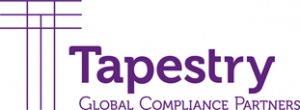
16 January 2023
Are you looking for ways to develop your career in 2023? Do you want to turn to a new share plans chapter? Does your current role focus on just one or two aspects of share plans? Tapestry’s Certificate in Employee Share Plans, accredited by the CGIUKI, will help you broaden your share plans knowledge, teach you new skills and demonstrate how you can use the skills you already have to target more areas of share plans. Learn all the key components of designing and operating executive and employee share plans as well as:
- gaining up to date information on regulatory issues
- learning practical tips for adding value to your company
- developing knowledge through best practice
- obtaining insight from leading experts
How will the course be structured?
The course is split into 2 parts and each part will be taught over 5 short days on Zoom, finishing around lunchtime each day. These session timings make it easier and more practical for on-screen learning and to fit around other commitments.
The course will combine larger group teaching with participatory learning through smaller breakout sessions, each hosted by a Tapestry lawyer. These sessions ensure an interactive experience and the opportunity to learn from each other, with fun exercises and practical examples to help consolidate your knowledge.
Are there in-person networking opportunities?
Yes. One of the most valuable added benefits of the course is the networking opportunities that you get from being with your classmates outside of the office. So although the teaching will be virtual, we will be hosting optional in-person networking sessions in London. Dinner and drinks are on us!
How will the course be examined?
Exams will be held virtually for the 2023 course. The examination dates are set out below.
What are the dates for the course?
Each part of the course will run over 5 short days. 9.30am to lunchtime. Times are UK times.
Part 1: 15-19 May 2023 / Exam: 3 July 2023
Part 2: 18-22 September 2023 / Exam: 6 November 2023
Do I need to book time off work to attend the course?
Course participants should plan to attend the course teaching in an uninterrupted virtual learning environment. We know this can be challenging at times, however we do find a strong connection between active course participation and exam success. We therefore recommend that you and your employer treat the time you are attending the tuition (i.e until around lunchtime each day) as being ‘out of the office’, just like you would if the course was in-person. There is time to work in the afternoons, if needed, though.
Note that you should plan to attend all of the course tuition (and minimum attendance requirements apply). Course participants will also need to commit to self-study time to prepare for the exams.
How much will the course cost?
Our 2023 course price is £4,250 plus VAT.
What our 2022 course participants say...
“I thought the course was brilliant! The speakers are all experts in their areas and are all really approachable and accommodating when any additional training is required. I would highly recommend Tapestry as a training provider!”
Vicky Noble, Intertrust
“All of the speakers have been amazing, I feel so privileged to be able to learn from such experienced people!”
Amber Clifton, The RM2 Partnership Limited
“I found the course to be very beneficial, everyone has a wealth of knowledge and are more than happy to share”
James Couchman, FARFETCH
“The course is very well structured and the support from the Tapestry Team is great”
Matt Tudball, Computershare
If you have any queries regarding the course, please do contact us. More information can also be found on our course website.
Best wishes
Team Tapestry


 Australia - employee share scheme reforms tweaked
Australia - employee share scheme reforms tweaked Canada - trust reporting delayed - again
Canada - trust reporting delayed - again India - new foreign exchange rules
India - new foreign exchange rules Russia - update on the impact of counter-sanctions regime
Russia - update on the impact of counter-sanctions regime  USA - SEC adopts rules on clawback
USA - SEC adopts rules on clawback  Global tax rates
Global tax rates
















